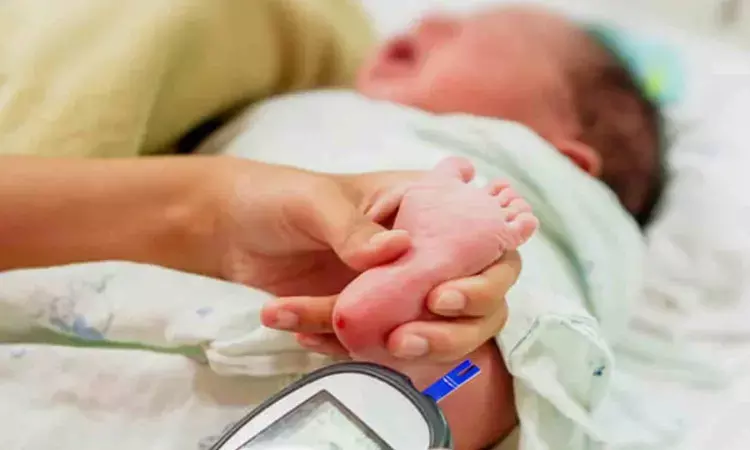- Home
- Medical news & Guidelines
- Anesthesiology
- Cardiology and CTVS
- Critical Care
- Dentistry
- Dermatology
- Diabetes and Endocrinology
- ENT
- Gastroenterology
- Medicine
- Nephrology
- Neurology
- Obstretics-Gynaecology
- Oncology
- Ophthalmology
- Orthopaedics
- Pediatrics-Neonatology
- Psychiatry
- Pulmonology
- Radiology
- Surgery
- Urology
- Laboratory Medicine
- Diet
- Nursing
- Paramedical
- Physiotherapy
- Health news
- Fact Check
- Bone Health Fact Check
- Brain Health Fact Check
- Cancer Related Fact Check
- Child Care Fact Check
- Dental and oral health fact check
- Diabetes and metabolic health fact check
- Diet and Nutrition Fact Check
- Eye and ENT Care Fact Check
- Fitness fact check
- Gut health fact check
- Heart health fact check
- Kidney health fact check
- Medical education fact check
- Men's health fact check
- Respiratory fact check
- Skin and hair care fact check
- Vaccine and Immunization fact check
- Women's health fact check
- AYUSH
- State News
- Andaman and Nicobar Islands
- Andhra Pradesh
- Arunachal Pradesh
- Assam
- Bihar
- Chandigarh
- Chattisgarh
- Dadra and Nagar Haveli
- Daman and Diu
- Delhi
- Goa
- Gujarat
- Haryana
- Himachal Pradesh
- Jammu & Kashmir
- Jharkhand
- Karnataka
- Kerala
- Ladakh
- Lakshadweep
- Madhya Pradesh
- Maharashtra
- Manipur
- Meghalaya
- Mizoram
- Nagaland
- Odisha
- Puducherry
- Punjab
- Rajasthan
- Sikkim
- Tamil Nadu
- Telangana
- Tripura
- Uttar Pradesh
- Uttrakhand
- West Bengal
- Medical Education
- Industry
Ahmedabad Civil Hospital raises concern over 9 percent Neonatal Mortality Rate

Ahmedabad: Civil Hospital officials disclosed on Tuesday that the neonatal mortality rate stands at approximately 17% for infants referred from other institutions and 9% for those delivered at the hospital itself. This information came to light following a discussion about the elevated mortality rates observed at the facility.
Dr Rakesh Joshi, the hospital's medical superintendent, reported that over the past three months, Civil Hospital has admitted 1,197 newborns. Among these, roughly 53% were born at the hospital, while the remaining were transferred from various other healthcare facilities or delivered at home before being brought to the Civil Hospital for medical attention.
Dr Joshi explained that a significant portion of the admitted neonates had low birth weights, with about 48% weighing less than 1.5 kilograms at birth, and another 27% falling within the 1.5 to 2.5 kilogram range, reports the Times of India.
High Mortality Rates Under Scrutiny
The hospital's high neonatal mortality rates have raised concerns among healthcare professionals and the public. The data shared by Dr Joshi highlights the challenges faced by the hospital in managing and treating newborns with critical health issues, particularly those with extremely low birth weights who are more susceptible to complications.
Referral and Admission Challenges
Dr Joshi emphasized the complexity of cases referred to Civil Hospital from other institutions considering that the facility is a tertiary care facility. Many of these infants arrive in critical condition, which contributes to the higher mortality rate among this group. The hospital is a major referral center, receiving patients from a wide catchment area, including those from rural settings and smaller healthcare facilities that may lack the resources to manage severe neonatal conditions. “Along with malnutrition, infections, premature births, and low immunity levels are some of the factors behind the high mortality levels,” said Dr Joshi.
The first 28 days of life – the neonatal period – is the most vulnerable time for a child’s survival. Children face the highest risk of dying in their first month of life at an average global rate of 17 deaths per 1,000 live births in 2022, down by 53 percent from 37 deaths per 1,000 live births in 1990.
Sanchari Chattopadhyay has pursued her M.A in English and Culture Studies from the University of Burdwan, West Bengal. She likes observing cultural specificities and exploring new places.




